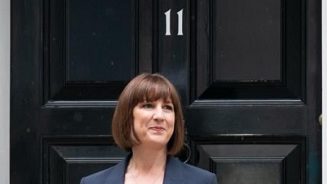In late December, when most people on the Isle of Man were focusing on holiday celebrations, critically important football and rugby matches and coping with the island’s reliably unpredictable weather, a preoccupied-sounding Allan Bell’s mind was already focused on February.
That is when the treasury minister’s budget, incorporating an unprecedented £90m income shortfall – created in October when UK chancellor Alistair Darling unexpectedly revised the island’s 400-year-old customs revenue-sharing agreement with Britain – is due to be presented. The shortfall resulting from the UK’s revenue clawback rises in subsequent years to £140m.
As he has in other recent interviews, Bell told International Adviser he could not reveal where he plans to make the necessary cuts in advance of his formal presentation of the budget to Tynwald, the Manx parliament, on 16 February.
But he hinted that the island’s zero-10 corporate tax regime was likely to be spared the axe – at least for now.
“Our zero-10 [regime] was deemed to be compliant by the European Union’s Code of Conduct group back in 2003,” Bell said. The Isle of Man introduced the then-virtually unique combination of a basic 0% corporation tax with a 10% tax on companies in certain sectors, including banking, in 2006. Bell has been treasury minister since December 2001.
Jersey and Guernsey have since gone to zero-10 regimes, but earlier this year, the EU code of conduct group announced this year that it was reviewing the Jersey and Guernsey zero-10 arrangements, in response to what was said to be pressure from some higher-tax EU member countries.
‘Different time’
“It [2003] was a different time, but nevertheless, we have been through the process and our system has been found to be fully compliant with what the EU, at that time [at least] wanted,” Bell said.
“Obviously we recognise that times have changed, and we will be following the current debate in Europe with some interest, and if there is a need to review the situation at any time, then clearly the Isle of Man will.”
Bell said there had been “no discussions at all” by government officials about establishing an independent VAT regime, as suggested by some Manx residents, who are increasingly frustrated by the UK’s heavy-handed treatment.
In addition to reducing the island’s budget by a fifth, the UK has also announced plans to end its reciprocal health care agreement with the IoM, beginning in April. In addition, the island has had to make do with significantly lower tax revenues since 1 December 2008, when Darling cut the UK’s VAT rate to 15% from 17.5%, taking the IoM’s rate down along with it.
As reported on Monday, the Isle of Man may seek to retain the health care arrangement following mounting concern among residents and lawmakers on the island.
As for whether the IoM was considering seeking a different relationship with the European Union – of which it is not a member, and which some islanders believe would benefit with an arrangement similar to that enjoyed by Switzerland – Bell said only that it was “far too early at this stage to say what new relationships may evolve from the events of the past two or three years”.
“The international debate over international standards and the building of closer relationships among various sectors has continued now for quite some time, and clearly that debate will continue,” he added.
“The Isle of Man is very much part of [that debate].”
New mood
Asked whether there was a new mood on the island compared with a year ago, when leaders of some recession-hit G20 countries were suggesting offshore “tax havens” were in large measure to blame for the crisis, Bell chose his words carefully.
“The debate about tax havens has been a wholly artificial and contrived issue in the first place. It is a phrase used to suit the purposes of any individual who might want to use it, without actually defining what it is they are talking about.
“But the IoM has had a very good report back from the IMF, it has been placed on the OECD white list, andits positive contributions have been confirmed in the Foot Review, so any fair-minded person would acknowledge that many of the scare stories which have been deliberately spread by politicians looking for scapegoats for the economic crisis have been confounded.
However, we recognise that there will [continue] to be politicians with deep-rooted prejudices against small financial centres, and we will need to stay alert to continue to defend our position.”
Still growing
Like a handful of other small financial centres, the Isle of Man has managed to avoid the global recession thus far, although its economy grew by only 2.5% in 2009, down from the 6% average annual growth it had grown accustomed to in previous years. Unemployment at the end of November stood at 2.1% on the island – that is, 885 Manx men and women were looking for work at that point – well below the rates of such neighbours as the UK (edging up towards 8%) and Ireland (12.5%).
And although the island’s economy has begun to show signs of stress, with a number of stores having closed and corporate down-sizings reported, Bell clearly feels that the trick with his budget will be to avoid putting the brakes on those elements of the economy that are ticking along as they are supposed to.
“The reduction in VAT [revenue, since December 2008] is affecting government revenues, but it is not directly impacting the economy,” Bell pointed out.
“The economy is still growing strong, financial services are still buoyant, and that is the way I hope things will stay that way for the time ahead.
“Yet in a general sense, clearly, you can’t remove £100m government expenditure from the economy without it having some impact on certain elements of it. Obviously we have to find a very substantial amount of money to balance the budget over the next few years. And we will be looking at every avenue to see which would be the best way.
“Changes will come by way of a combination of mainly spending reductions, the use of reserves, perhaps the increase of charges.”
Although “there may be a need to consider” fresh taxes, Bell added, again, the intention is still to avoid touching corporate rates.




